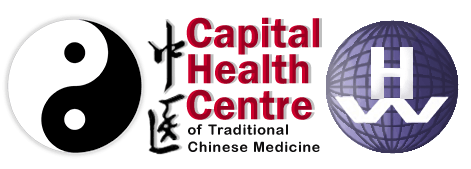Patience Within Traditional Chinese Medicine Healing
In Traditional Chinese Medicine, patience is a virtue, but also a key aspect of the healing journey. When clients come in, they often ask our practitioners “how long until my pain gets better?” and “how soon until I am cured?”. While these are good questions, it is difficult to answer because conditions can change, and in Traditional Chinese our focus is on improving your health and wellbeing as a whole. In this blog post, we explore the connection between Traditional Chinese Medicine and patience, especially in embracing time as a component of the healing process.
When facing health challenges, it is our instant reaction to seek immediate relief by asking our doctors for a concrete timeline in our healing journey, or by finding pharmaceutical drugs that can target our symptoms. However, in Traditional Chinese Medicine, the physical, mental, and emotional aspects that balance one’s well-being, are complex, unique, and interconnected. Attempting to catch time and expect quick relief can hinder a long-term healing process, and lead to stress (which can also negatively impact your overall health). As such, it is important that clients attempt to achieve and maintain a patient, calm mindset throughout their journey to better health.
Our holistic approach within Traditional Chinese Medicine encourages individuals to cultivate patience within themselves, particularly in their healing journey. If one tries to hurriedly demand the healing process, we may neglect the signs of illness, which may otherwise be possible to prevent. By trying to slow down our mind and bodies, and exercise restraint and patience, we have time to reflect on what our mind and body is telling us, which can be a very beneficial step in becoming self aware. This concept is further explored in our blog post 'Good Questions are an Essential Path to Leading Change'.
In TCM there are no quick fixes but support and advice to assist you throughout your health journey, to work towards a healthy and balanced mindset, and lifestyle in the long-term. Health is not about the immediate relief we can gain, but the actual understanding of our health issues so that we may seek to understand our body and mind better, and so that we can prevent future health issues. Rather, TCM is about the wisdom and knowledge you gain along the way to achieving your balanced life.
The complexity of the underlying issues of health concerns is also something to recognise. In the quest for quick fixes and solutions, we can often overlook health conditions that have taken years to manifest. Thus, TCM emphasises that we should address our symptoms as a part of the interconnected system that is our body and mind. All aspects of our bodies are interdependent, and if a symptom presents itself, it can often reflect an imbalance in your overall health that should be assessed by a practitioner. This is also because pain or other symptoms can also mean that there are underlying issues at play, like the root of trees that run deep into the soil. By utilising patience, we can have the appropriate amount of time to unravel and address these concerns in a way that will benefit your overall health.
In TCM it is also important to recognise that we must not only have patience for our own journeys, but also for the part we play in the health journeys of our friends and families. By having patience with those around you, it can create a productive environment for healing that can support and foster the overall wellbeing of an individual.
In the contemporary world we live in, the ancient wisdom associated with TCM can serve as a reminder for us to embrace patience throughout our healing journeys, so that we can navigate the complexities of our health and wellbeing, and not rush the process necessary to recognise any early signs or concerns. Patience is a key material in the tapestry of true healing.
Written by Georgia Chen and Lili Henderson-Clark




